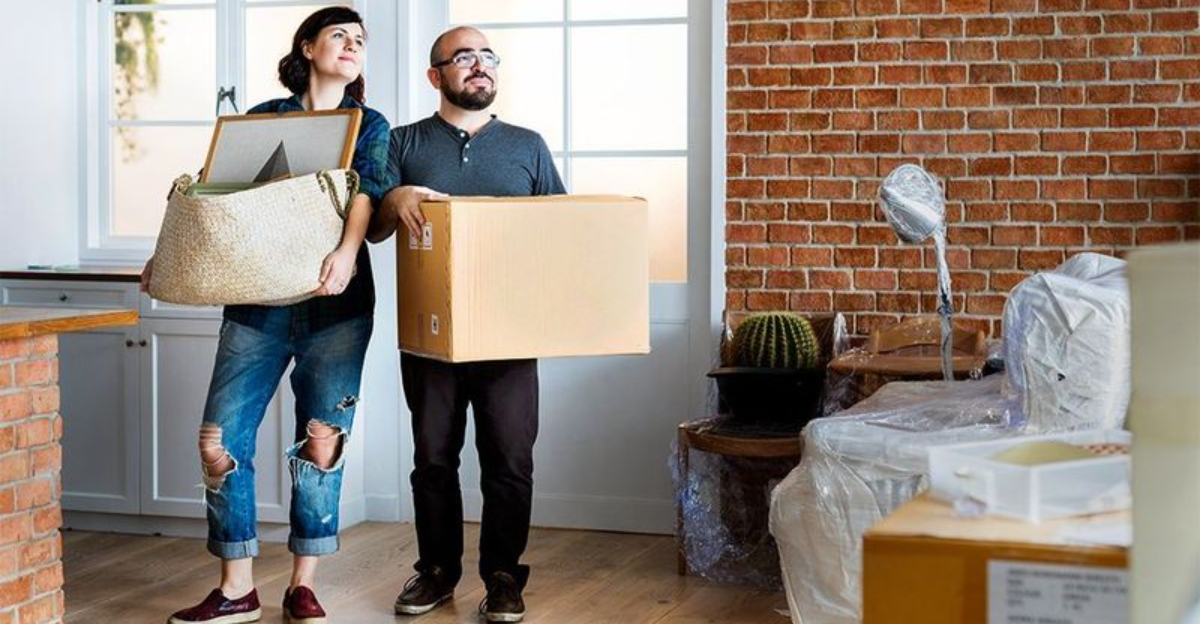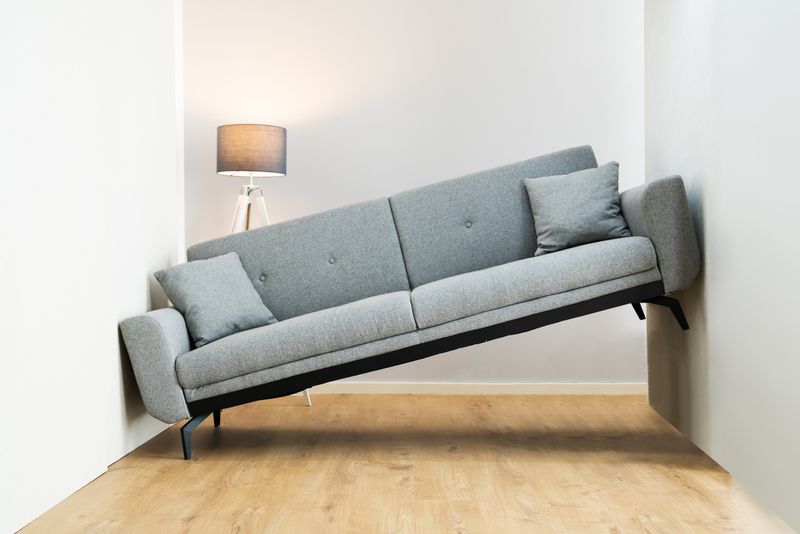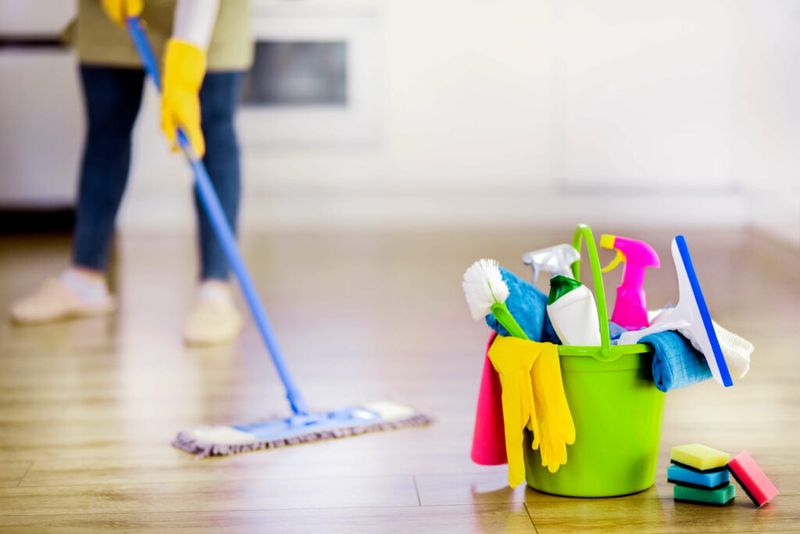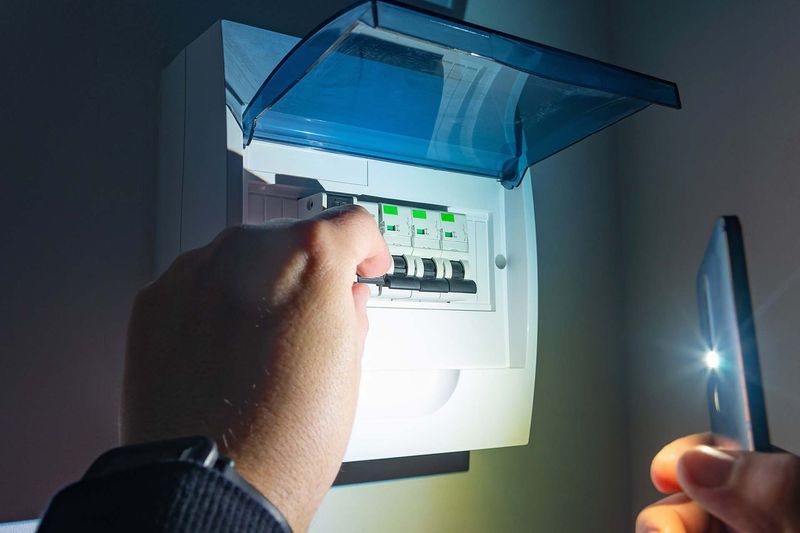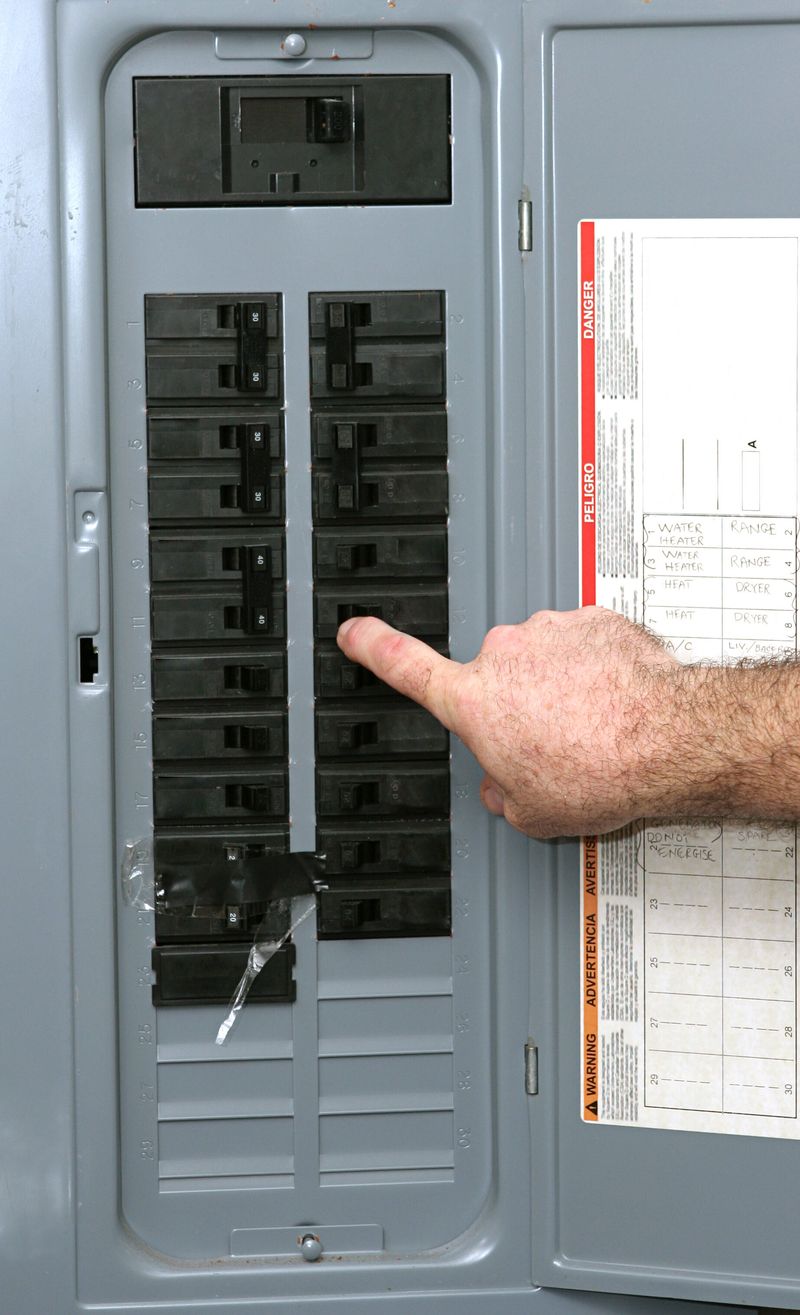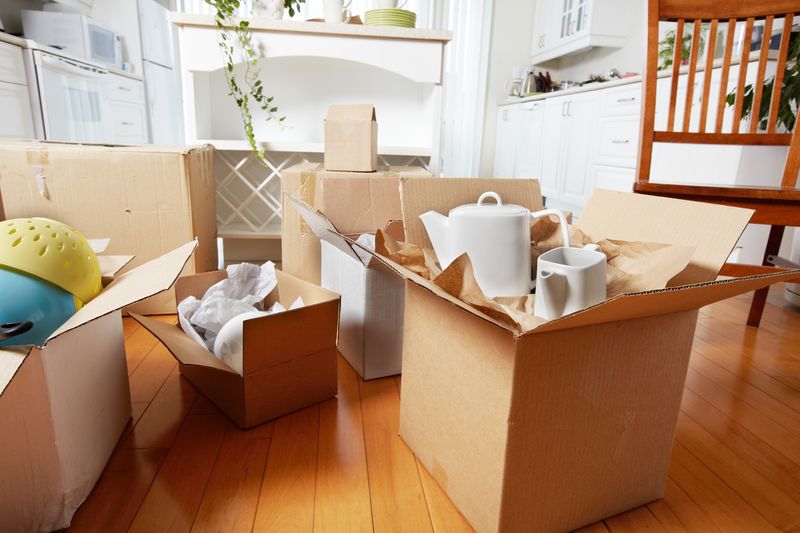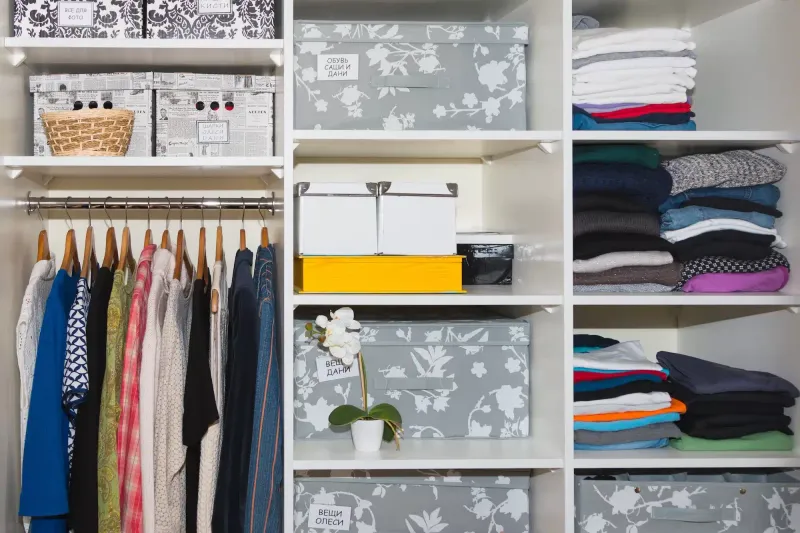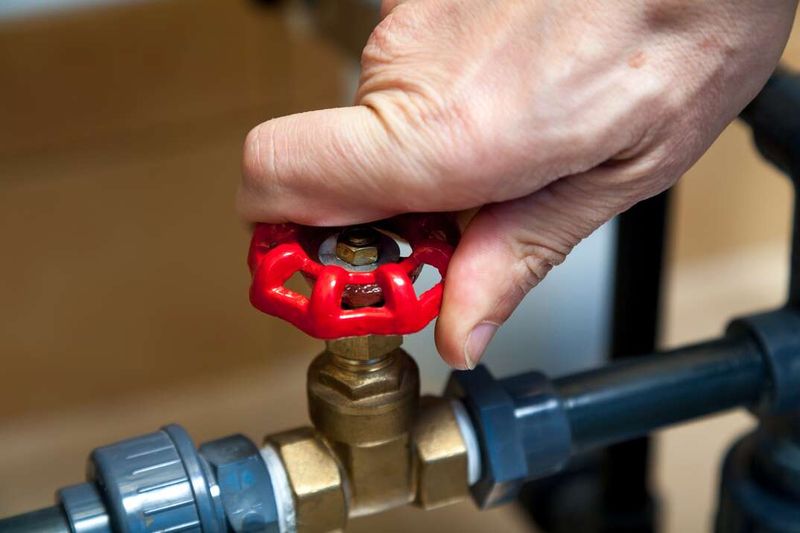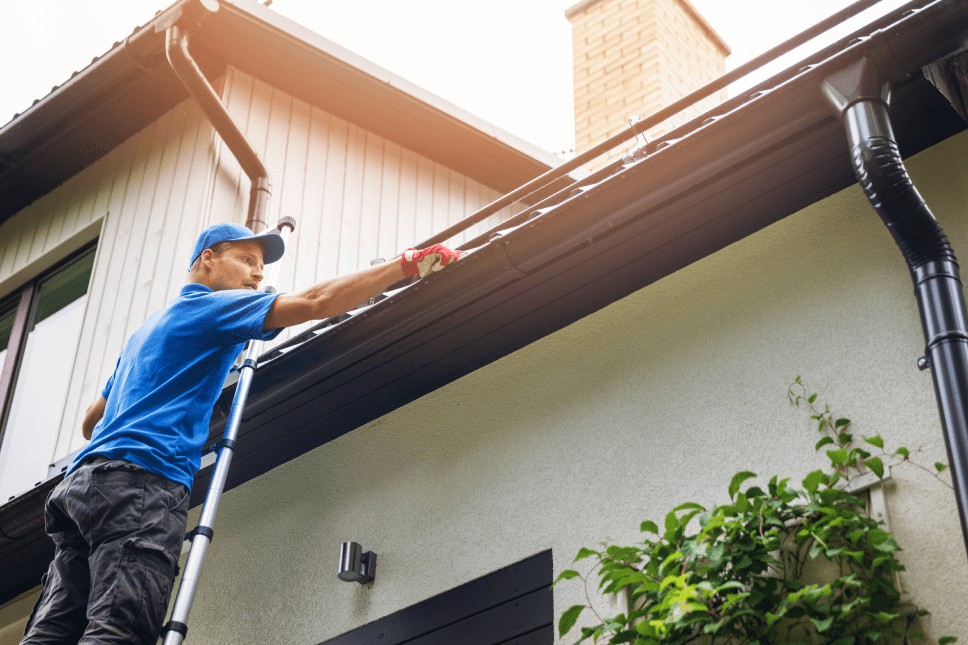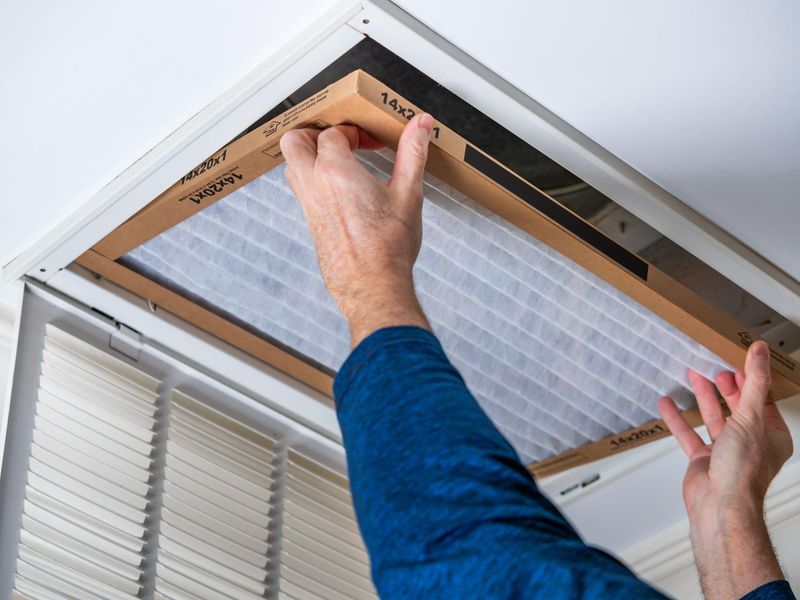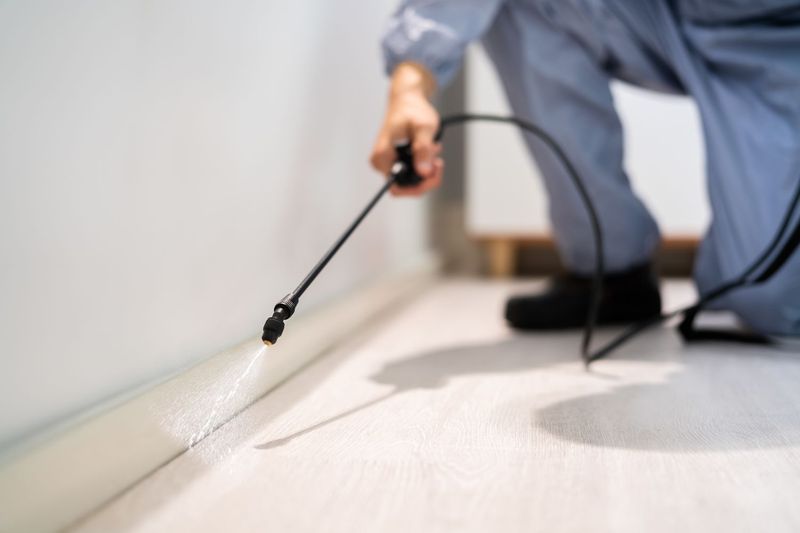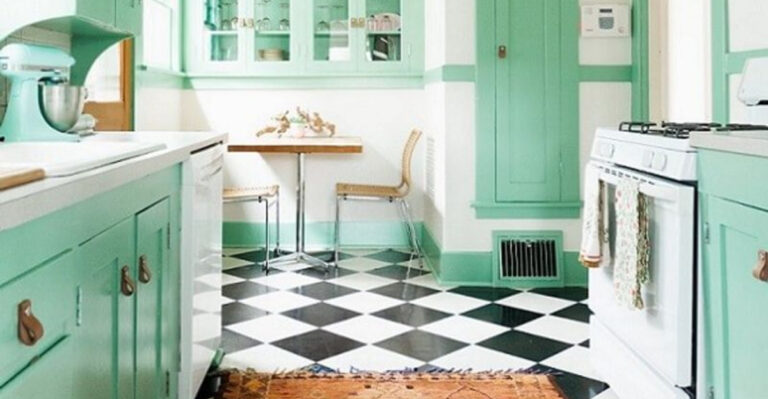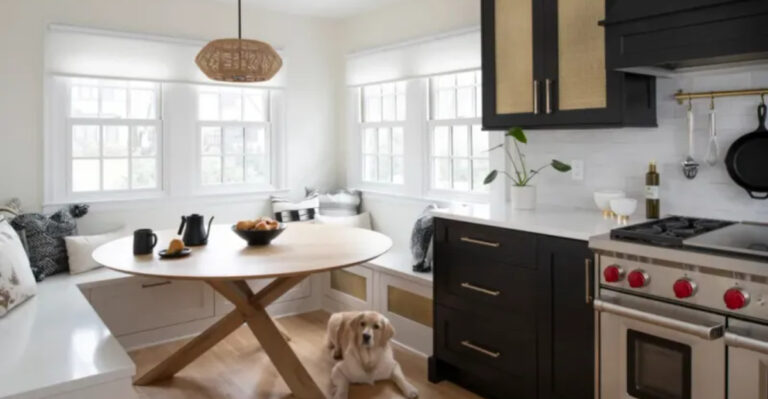15 Common Mistakes People Make When Moving Into Their First Home, According To Experts
Moving into your first home is super exciting, but it’s also full of hidden challenges that can trip up even the most prepared new homeowner.
Real estate and moving experts have seen it all – from forgotten utilities to security oversights that leave new homeowners scrambling.
Understanding these common pitfalls before you move can save you stress, money, and those facepalm moments when you realize what you missed.
1. Forgetting to measure doorways and furniture
Ever witnessed the heartbreaking moment when a sofa simply won’t fit through the front door? This scenario plays out for countless first-time homeowners who skip the measuring tape.
Professional movers recommend measuring all doorways, hallways, and stairwells before moving day. They’ve seen too many beautiful pieces abandoned on front lawns or returned to stores.
2. Skipping a deep clean before unpacking
While those boxes might be calling your name, rushing to unpack before thoroughly cleaning is a rookie mistake. The previous owners’ dust, allergens, and forgotten grime lurk in every corner.
Focus especially on forgotten areas like inside cabinets, behind appliances, and air vents where years of dust accumulate.
3. Failing to set up utilities in advance
Imagine your first night in the new home – no electricity, internet, or running water. Yikes! Many new homeowners discover too late that utility transfers aren’t instantaneous.
Most utility companies require at least 3-5 business days to process new service requests. During peak moving seasons, waiting times can stretch even longer. Create a utilities checklist two weeks before moving day to avoid uncomfortable first nights in your new home.
4. Buying too much furniture at once
Walking into an empty house can trigger an overwhelming urge to fill every space immediately. Hold that credit card!
Live in your home for at least a month before making major furniture investments. This gives you time to understand traffic patterns, lighting at different times of day, and how you naturally use each space.
5. Postponing important paperwork
Amidst the chaos of boxes and furniture arrangements, crucial paperwork often gets shoved into random drawers. This seemingly small oversight can lead to missed deadlines and headaches.
Create a dedicated ‘home management’ binder with sections for warranties, insurance documents, contractor information, and maintenance schedules to stay organized from day one.
6. Ignoring the electrical panel
That mysterious box in your basement or garage might seem intimidating, but getting acquainted with your electrical panel can save you from midnight frustrations.
Take an hour to methodically test each breaker, labeling what it controls. Include outlets, lights, and major appliances for a complete map of your home’s electrical system.
7. Unpacking without a system
Random unpacking creates chaos that can last for months! Without a strategic unpacking plan, essential items disappear into random boxes while things you rarely use take prime real estate.
Use temporary labels on cabinets and drawers before putting items away to test if your organizational system actually makes sense for daily life.
8. Underestimating storage needs
Those spacious closets that impressed you during the home tour suddenly seem impossibly small once you start unpacking. Where did all this stuff come from?
Before purchasing storage solutions, completely unpack first. This gives you an accurate picture of what you’re storing and prevents buying organizational systems that don’t actually meet your needs.
9. Skipping window treatments
Your first night in the new house arrives, and suddenly you realize everyone can see directly into your home! Privacy concerns aside, bare windows also affect temperature control and furniture protection.
At minimum, purchase inexpensive temporary paper shades for immediate privacy while you decide on permanent window treatments that complement your decor.
10. Neglecting to locate shut-off valves
Water gushing from a broken pipe at 2 AM becomes infinitely worse when you’re frantically searching for shut-off valves you never located. This emergency scenario plays out regularly for unprepared homeowners.
Take photos of each valve’s location and create a simple map for quick reference during emergencies when panic might cloud your memory.
11. Delaying meeting the neighbors
Those unfamiliar faces next door know more about your property than you might realize! They might even know quirks about your specific house from observing previous owners.
A simple plate of cookies or casual front yard conversation can establish valuable connections that prove helpful during emergencies or when you need to borrow that cup of sugar.
12. Overlooking appliance manuals
Those boring booklets might seem like obvious recycling bin candidates, but tossing appliance manuals is a mistake you’ll regret when something inevitably malfunctions.
Create a dedicated binder for all appliance manuals, warranty information, and maintenance schedules. For extra protection, scan digital copies and save them to cloud storage for access even if the physical copies disappear.
13. Neglecting gutter and roof inspection
While you’re focused on interior decorating, potential disasters might be brewing overhead. Even homes that passed inspection might have developing issues or clogged gutters that weren’t obvious during the buying process.
Schedule a professional roof and gutter inspection within your first month, especially if you’re moving in during autumn when falling leaves quickly create blockages.
14. Forgetting to change HVAC filters
Those mysterious rectangular filters hidden in vents or air handlers might seem insignificant, but HVAC technicians see the consequences of neglect daily.
Mark your calendar for regular filter changes – typically every 1-3 months depending on your system, household allergies, and whether you have pets.
15. Ignoring pest prevention basics
That pristine home showing likely benefited from recent pest control, but prevention requires ongoing vigilance.
Schedule a preventative pest inspection during your first month, seal exterior gaps and cracks, and establish proper food storage habits before unwanted roommates make themselves at home.

